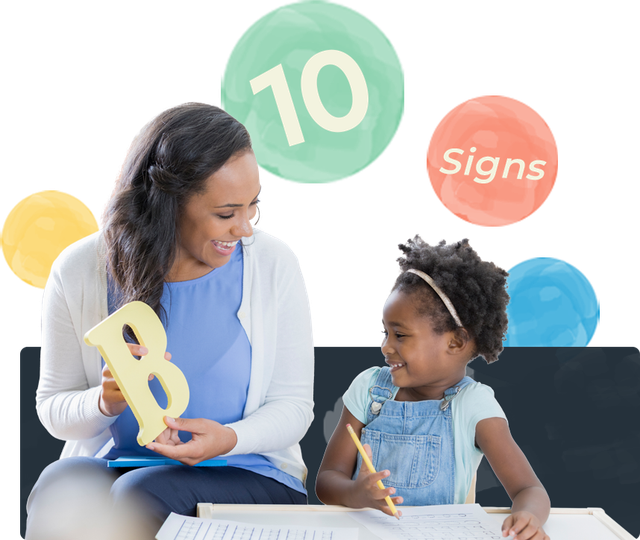The Role of a Speech Pathologist in Treating Speech Impairments
The Role of a Speech Pathologist in Treating Speech Impairments
Blog Article
How a Speech Pathologist Can Assist Improve Interaction Abilities
Reliable communication is a foundation of individual and professional success, yet many people encounter challenges that prevent their ability to reveal themselves clearly. A speech pathologist is equipped to address these obstacles through targeted analysis and intervention approaches tailored to each individual's demands. By using evidence-based therapeutic methods, they not just work to enhance speech and language disorders yet additionally enhance total communicative capability. Comprehending the diverse function of a speech pathologist discloses how their competence can change lives, inviting a better exam of the specific techniques and outcomes connected with their practice.
Recognizing Interaction Disorders
Comprehending communication disorders is essential for recognizing how they impact people' capacity to reveal themselves and engage with others. Interaction problems incorporate a variety of troubles that affect speech, language, and social communication, frequently impeding effective interaction. These conditions can arise from numerous factors, consisting of neurological conditions, developing hold-ups, physical problems, or psychological issues.
Speech disorders may manifest as troubles in voice, expression, or fluency production, influencing how words are pronounced or spoken. Language disorders, on the other hand, entail obstacles in understanding or using language, which can hinder both non-verbal and spoken communication. Social communication problems are identified by problems in the practical facets of communication, such as taking kip down conversation or understanding social hints.
The consequences of interaction disorders are extensive, affecting not only the individual's capacity to share thoughts and feelings however also their social connections, instructional possibilities, and total high quality of life. Recognition of these conditions can promote compassion and assistance, motivating efficient strategies for interaction and involvement. Comprehending the intricacies of interaction problems is an important step in the direction of advertising inclusivity and resolving the demands of those affected.
Duty of a Speech Pathologist
Speech pathologists often play a vital role in identifying and dealing with interaction conditions, employing a variety of evidence-based techniques tailored to every individual's needs. These specialists deal with individuals across the life-span, from kids with speech hold-ups to grownups recovering from strokes or distressing brain injuries. Their experience encompasses a variety of interaction issues, consisting of articulation, fluency, voice, and language disorders.
In healing setups, speech pathologists use organized interventions developed to boost interaction abilities. They might execute strategies such as speech workouts, language games, and social interaction training to help with improvements in expressive and responsive language capacities. Speech Pathologist. In addition, they educate clients and their family members concerning reliable communication techniques and adaptive methods to browse daily interactions
Beyond direct treatment, speech pathologists collaborate with other medical care experts, caregivers, and educators to ensure an extensive technique to treatment. They promote for clients by supplying resources and support, making it possible for individuals to achieve their interaction goals and boost their general lifestyle. As specialists in the field, speech pathologists are necessary in cultivating efficient communication, advertising independence, and boosting social participation for those with communication difficulties.
Evaluation and Diagnosis Process
The analysis and diagnosis procedure performed by speech pathologists normally includes a thorough examination to recognize communication disorders precisely. This process starts with an in-depth medical history, where the clinician collects important details about the person's medical, academic, and developmental background. Comprehending the context of the person's communication problems is essential for an exact medical diagnosis.
Complying with the case background, speech pathologists use standardized tests and casual assessments to evaluate different elements of communication, including speech noise production, language understanding, meaningful language, and social communication abilities. These analyses are customized visit site to the person's age and certain problems, providing beneficial information for evaluation.
Observation is also a crucial element of the analysis procedure, as it allows the clinician to see direct how the private connects in natural setups. Additionally, meetings with household members and educators can offer understanding into the individual's interaction difficulties across different atmospheres.
Once the assessment is total, the speech pathologist synthesizes the findings to figure out a medical diagnosis and suggest proper treatments. This extensive analysis process makes certain that individuals obtain targeted assistance customized to their special communication needs, laying the foundation for effective healing methods.
Healing Methods and Methods
Many therapeutic methods and methods are used by speech pathologists to address a selection of communication disorders effectively. One widely made use of technique is articulation treatment, which concentrates on remedying speech sounds via repetition and visual signs. This strategy is particularly useful for people with speech audio conditions.
An additional reliable method is language treatment, which boosts both receptive and expressive language skills. This may include interactive tasks that promote vocabulary development, syntax understanding, and conversational skills. Furthermore, speech pathologists usually use social abilities training to boost practical language capacities, making it possible for people to navigate social interactions a lot more efficiently.
Fluency shaping and stuttering modification techniques are particularly designed to assist those experiencing fluency problems. These approaches aid clients create smoother speech patterns and handle the physical and psychological components of stuttering.
Furthermore, augmentative and alternative communication (AAC) systems are utilized for individuals with extreme interaction disabilities. These systems, which can include motions, icons, or electronic tools, give essential assistance for reliable interaction.
Benefits of Speech Treatment

In addition, speech therapy can aid in developing important listening and understanding abilities, promoting much better communication in discussions. Individuals with cognitive-communication disorders can additionally profit, as treatment concentrates on reinforcing memory and analytical capabilities, essential for efficient communication.
Another vital aspect is the emotional support offered throughout therapy sessions. Speech pathologists produce a risk-free setting, motivating patients to overcome anxiousness and stress pertaining to their communication problems. This assistance can lead to enhanced self-esteem and overall psychological health.
Additionally, early intervention with speech treatment can stop additional difficulties, ensuring that individuals reach their more information complete communicative possibility. Overall, the benefits of speech treatment prolong beyond mere speech enhancement, positively influencing different measurements of life for those impacted by interaction difficulties.
Conclusion
In summary, speech pathologists play a critical duty in addressing communication conditions via analysis, medical diagnosis, and customized therapeutic interventions. By utilizing evidence-based strategies, these experts boost individuals' speech and language capabilities, promoting boosted clearness, fluency, and social interaction abilities. The benefits of early treatment underscore the value of seeking aid from speech pathologists, as their competence can dramatically enhance communicative capacity, inevitably resulting in higher success in both expert and individual rounds.

Speech pathologists frequently play an important duty in identifying and treating communication problems, using a variety of evidence-based strategies tailored to each individual's demands. As experts in the area, speech pathologists are crucial in promoting reliable interaction, promoting freedom, and improving social participation for those with interaction obstacles.

Report this page